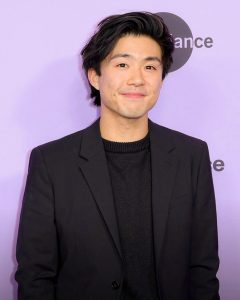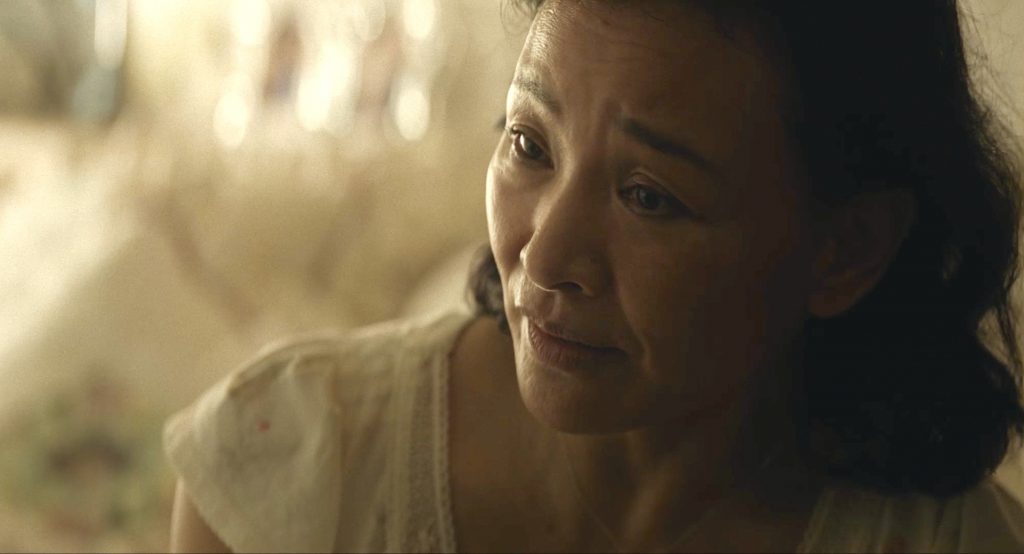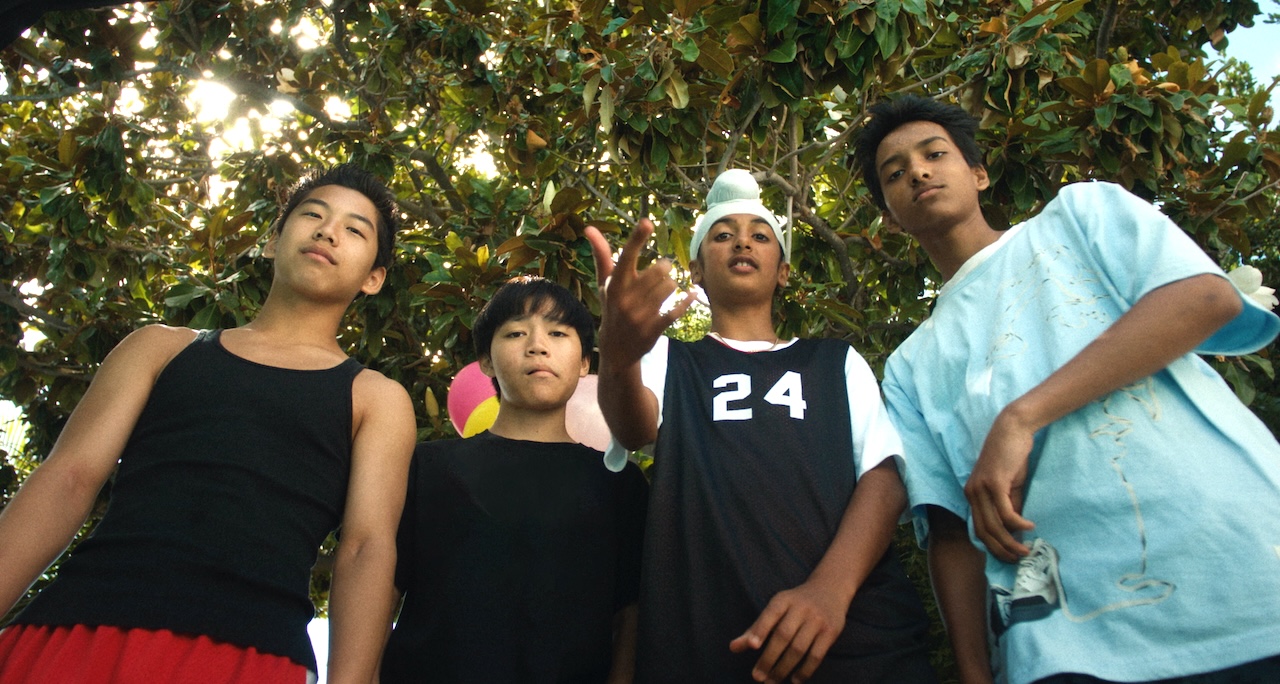In 2008, Academy Award nominee Sean Wang (Nai Nai Wai Po) was a thirteen year old Taiwanese-American kid growing up in the multicultural community of Fremont, California. His personal experiences inspired his film Didi.
“There was a lot of running around, going to parks with my friends and causing trouble and chaos because our city was a little bit boring. We made our own fun,” recalls Wang. Kids had little direction and amused themselves by mindlessly blowing up letter boxes among other things.
Then Wang joined the skating community which fractured his ‘other’ friend community. “I had my skate friends and then I had my ‘friend friends.’ I had different pockets of friends that didn’t know each other,” he adds.
Didi is a coming of age story of Chris Wang (Izaac Wang) who navigated his family and all his friend groups, with perhaps a touch of romance with Madi (Mahaela Park) via her Myspace page. Sean contends that Sean is a meeker and messier version of himself.
“The fusion of skate and immigrant culture is very interesting to me. They’re very different from each other, but there’s also that intersection where they’re almost one and the same,” Sean muses.

Sean Wang
“Being an immigrant kid in America, especially at that age, kind of forces you to kind of look at things from an outsider’s point of view. I think skating has always naturally attracted creatives and weirdos and people who exist on the margins.” Since he never became a pro skater, Sean “felt belonging, but you’re still an outsider among outsiders.”
He comments that there was an inherent shame in not belonging as he shaped his identity. “It’s personal shame, cultural shame, and societal shame and how those three things come together and essentially keep Chris from feeling like he belongs in certain spaces.” This is subtly explored through the prism of comedy and friendship.
Earlier drafts of Didi also had a physical presence from his father before leaving on a business trip halfway through. We never see him in the current version. “The challenge was feeling his presence without ever seeing or hearing him. It’s almost establishing what he means to the family through all the other characters.”
Didi draws on several coming of age film references including Rob Reiner’s Stand By Me, François Truffaut’s Les Quatre Cents Coups (The 400 Blows), and even Greta Gerwig’s Lady Bird. Wang also looked to skating videos like Bag Of Suck by Enjoi skateboards.
Wang previously made a short called Warm Springs which was his answer to Rob Reiner. In many respects, it was a precursor to Didi featuring a more naïve and scared version of Wang. In transforming it into Didi, Sean wanted to capture the clumsiness and vulnerability, the camaraderie and irreverence of teen friendships.
A Mother-Son Story
Didi really came together for Wang when he decided the backbone of the film was the story between Chris and his mother Chungsing (Joan Chen).
Despite its tumultuous nature, Wang wants Didi to be a ‘slice of life’ film built by seemingly random events. “There’s no narrative engine and it kind of feels like things are just happening. But I think we really wanted the movie to feel it had a narrative momentum. Things were happening to this character and he was making decisions. There was something that was driving him.”
Sean starting jotting down ideas for Didi in 2017. They were essentially a bunch of memories and anecdotes based on his experiences with his mother. It took him a month to write a “really, really long draft of a mother-son story trapped inside Stand By Me.” It pits the high-jinx immaturity of boys with the most tender moments between a mother interacting with her challenging son. ChungSing is an artist who captures the beauty of the world so she doesn’t get angry. “Sometimes I dream,” she ponders as she contemplates the cultural with the generational divide with her son and his future.

Joan Chen stars as “Chungsing Wang” in writer/director Sean Wang’s DÌDI, a Focus Features release.
Credit: Courtesy of Focus Features / Talking Fish Pictures, LLC. © 2024 All Rights Reserved.
Wang also wanted to better incorporate the internet and social media culture into the fabric of the story, since it was beginning to make a cultural impact at the time. AIM and Myspace were technological innovations despite their basic graphics.
“We were really seeing how much we could maximize that language in our movie because it’s so specific to that world.”
Chungsing isn’t a single mom because she still receives financial support from her absent husband. However, she single-handedly raises her children. It was suggested that the father be removed from the story and make her a single mom during many early discussions. Wang declined the suggestion because she wasn’t a single mom.
“I think it’s more complicated. They’re together, but the mom is forced to deal with the kids, the teenage angst, and how turbulent that could be for somebody,” states Sean.
Chris Wang navigates a house full of women with a boyish energy as the only male in the house. “It was creatively exciting to see how that unfolded, especially with teen boys and teen girls.”
Didi builds to its crescendo at the end of the story. “That was something that we had to reverse engineer,” notes Sean. “It was hard to calibrate because ultimately you are mostly seeing the movie from Chris’s perspective.” Chris’ mom had to work effectively in her limited scenes to make the biggest impact on the story and her relationship with him.
A lot of these things are felt rather than spoken in the film. They don’t need to be explicitly stated
Marrying Irreverence With Emotion
“I have a tendency to access things that are honest, human and emotional through things that are humorous and light-hearted,” declares Wang of his intentions as a screenwriter.
“I’m an emo kid, so I like things that are very earnest and emotional. I want to feel things, but I also I think I’m still in touch with my child-like self, especially for this movie.”
Sean Wang doesn’t like to over-explain things in his stories. He often watches films he doesn’t fully understand. So long as he gets the overall gist of the filmmaker’s intention and gets a sense of what the characters are doing, he’s satisfied. “The Wang family wouldn’t naturally explain everything,” so why would Sean.
Chris Wang’s future is left wide open at the end of the summer. “He’s entering a new phase of his life at high school. He’s deciding which clubs to join and who his friends will be.”
Chris stumbles from scene to scene, leaving a trail of ruin in his wake until he reaches the end. There is no pink bow to wrap up the story. It’s all part of maturing and learning. It’s about the potential of new and unknown beginnings.
“He went through a lot, but ultimately I do think it’s a hopeful ending.” Chris doesn’t completely find himself at the end of Didi. He hasn’t yet determined who he is and exactly what he wants out of life. And that’s okay. It’s the journey that matters.
Sean grapples with whether Didi is a coming of age movie at all. It’s a bunch of teen experiences that begin and end. Some good. Some bad. All of them shape Chris’ character.
